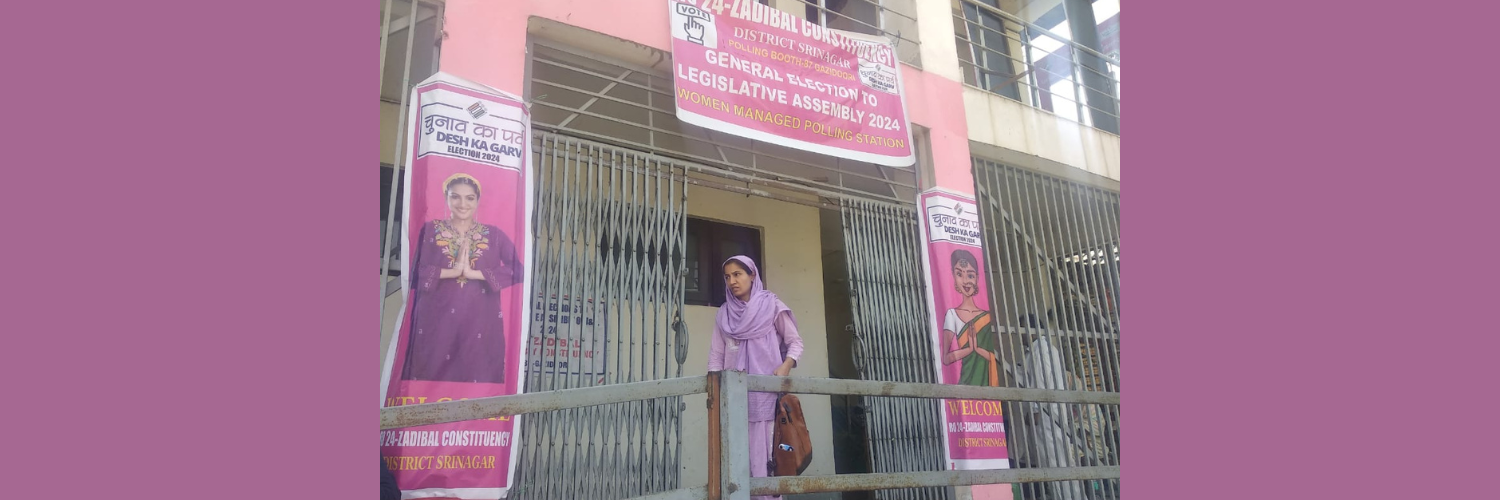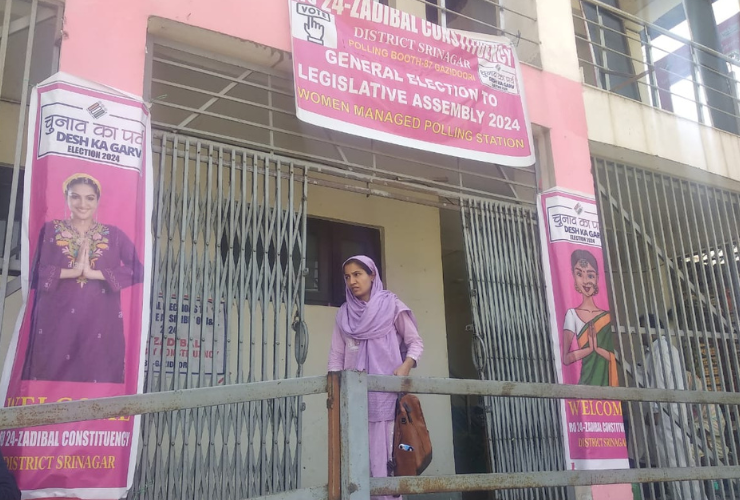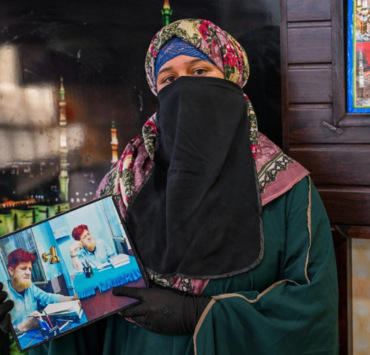
By Sumayyah Qureshi

In Anchar, a neighbourhood in the northern part of Srinagar, Kashmir, many women turned out to vote in the second phase of polling for the state’s legislative assembly elections, on September 25. Their concerns: incarcerated youth, the need for jobs, and soaring electricity bills. Anchar had emerged as one of the centres of protest soon after the removal of the special status of the erstwhile Jammu and Kashmir state and its bifurcation into two Union Territories in 2019.
Women hope that once they have a local elected representative in Jammu and Kashmir’s assembly, there will be someone they can address their problems to. This is the first state election since 2019, and Kashmir has been under Delhi’s control since. The assembly elections in J&K were last held in 2014.
Hasina, a voter from Soura, Srinagar, who had come to vote along with her daughter, said with tears in her eyes, “We belong to the labour class. I live in rented accommodation where I pay Rs 6,500 every month. The electricity charges have increased, and we get bills as high as Rs 4,000, which we are unable to pay. My sons and daughter are without jobs. I hope the local representative alleviates our problems, so we don’t have to beg anyone.” Hasina hopes her children see better times after the elections.
The three polling stations in the Anchar area, two under the Zadibal constituency and one under Hazratbal, were heavily guarded by the police and security forces. Elections were conducted for 26 seats of six districts in Jammu and Kashmir. In the second phase of the elections, 10 women candidates were in the fray in J&K. While Zadibal had no woman candidate, there was only one from the Hazratbal constituency: Asiea Naqash of the Peoples Democratic Party.
Many of the women are mothers. “Anchar has seen a lot of injustice and oppression,” said Rafiqa, her voice choking with emotion. Once the government is formed, she hopes jailed youth are released. Locals said post the 2019 protests, more than 50 youth have remained in jail on charges of stone-throwing.
People here mostly earn their livelihood from weaving shawls and from fishing in the Anchar freshwater lake. The waterbody is also rich with water chestnut and lotus root that are harvested. Most people here have meagre resources, as they belong to the community of fisherfolk. Most women here take care of their households and also perform some of the jobs in making the lake produce market-ready.
Most women in Anchar say they have voted for issues like employment opportunities, release of jailed youth, and development. A first-time voter Zara from Soura, said she had voted for change and the need for more educational opportunities in the Kashmir valley: “Our representative will be more concerned about us than someone who is not from Kashmir.”
Similarly, Shafiya, a teacher at a private school, said, “I am hoping for something good, a peaceful and developed Kashmir.” She hoped there would be enough jobs in Kashmir so that people wouldn’t have to look for employment in other states.
Prime Minister Narendra Modi of the Bharatiya Janata Party and Leader of the Opposition Rahul Gandhi of the Congress were in Srinagar prior to the elections to campaign for their respective parties.
The two main local parties in the fray are the National Conference, which is fighting the elections in coalition with the Congress; and the Peoples Democratic Party. Engineer Rashid of the Awami Ittehad Party (AIP), who was released on interim bail from Tihar Jail on September 11, has also emerged as a major political player. He is a Member of Parliament from the Baramulla parliamentary constituency. The AIP entered into an alliance with banned Jamaat-e-Islami’s (JEI) former members before the elections.
Despite the ban on the JEI by the Central government under anti-terror laws in 2019, many of its former leaders are contesting the assembly elections as independent candidates, some of who are being supported by the AIP alliance.
The Election Commission of India said the second phase of polling in Jammu and Kashmir had seen a voter turnout of 54%. The elections are being held in three phases in J&K. The first phase of voting took place on September 18 and the third phase on October 1. The counting of votes will take place on October 8.
Sumayyah Qureshi is an independent journalist based in Jammu & Kashmir.
Edited by Sunalini Mathew




